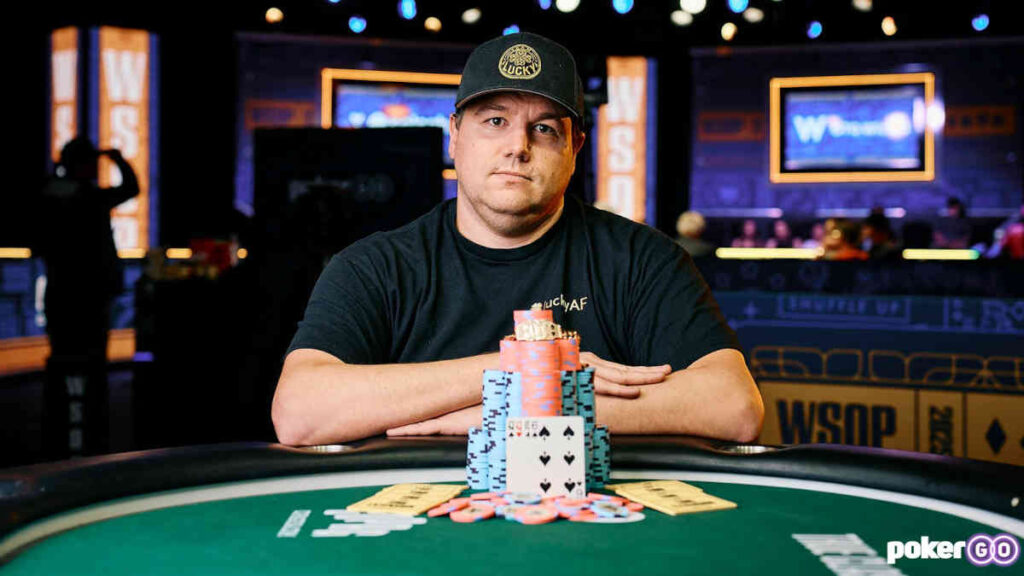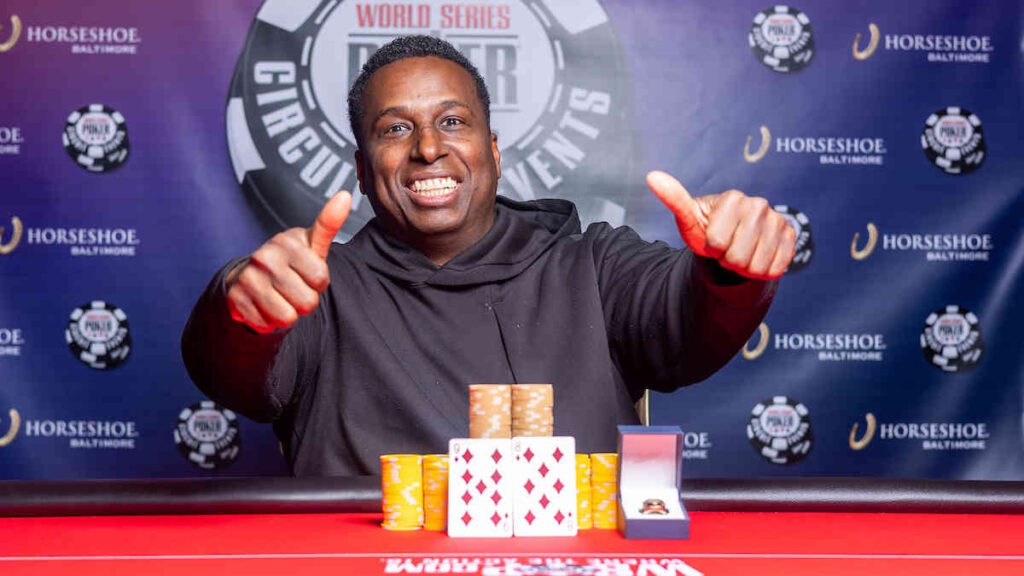Image courtesy of PokerGO.com
For the past several days, poker media and social networks have been swamped with the WSOP Player of the Year debate, which was mainly started by none other than Phil Hellmuth.
For context (in case you’ve missed it somehow), Shaun Deeb managed to take down the 2025 WSOP PoY title for the second time in his career, holding off Benny Glaser and Michael “The Grinder” Mizrachi.
Both Mizrachi and Glaser had a phenomenal summer series. “The Grinder” claimed victories in the prestigious Players Championship and the Main Event, while Glaser won three bracelets.
Yet, it was Shaun Deeb, who won only the $100k PLO High Roller, who accumulated the greatest number of points on the PoY leaderboard, winning the title in a really close race against Glaser.
Hellmuth, who was initially the first one to congratulate Deeb on his achievement, came out on X later, sharing his point of view that the Player of the Year system was flawed and that winning bracelets should have a much bigger impact than finishing in the second or third place.
He even went as far as to accuse Deeb of having influenced the WSOP to utilize a calculation system that was more favorable to him. Hellmuth later apologized for this statement, which didn’t really have a foundation in reality, but stuck to his guns on other points.
A Never-Ending Debate
Those who have been poker fans for some time probably know that this isn’t the first time the Player of the Year system has been scrutinized. In fact, it was criticism from previous years that led the WSOP to change things up for 2024.
The new formula limited the number of cashes that count towards the PoY standings to just ten and allowed only one online result. The main goal was to make it so that someone couldn’t win based on a bunch of min-cashes.
Instead, to get a title, the player would now have to also score some wins and other very deep finishes.
It seemed like the new rules addressed all the main issues, but here we are again, debating the Player of the Year scoring system and if it needs to be changed again.
Should it be more bracelet-focused, as Hellmuth suggests, and is winning the bracelet so much more important from the PoY perspective than making final tables and finishing runner-up?
Again, for context, Deeb only won one bracelet this summer, but he also racked up three second-place finishes and one third-place finish.
Glaser managed three wins and one more final table (finished seventh), while Mizrachi made only two final table runs, both of which ended in victories in two of the most prestigious WSOP events.
All three have had impressive results, but there is only one Player of the Year title. This Series was, in general, an extraordinary one, creating a bit of an unusual situation. But is there really a need to debate things after the fact?
Deeb Won, Fair and Square
The World Series of Poker is a massive event with tens of thousands of players and 100+ events if we count online tournaments. Some events feature huge fields with heaps of recreational players, while others have smaller fields, but are filled with top-tier players.
There are small buy-ins, big buy-ins, Hold’em and non-Hold’em events, and things are changing year to year.
All this is to say that there will never be a perfect Player of the Year formula to account for all the possible eventualities.
Shaun Deeb accumulated the greatest number of points according to the formula that was used for this year, and there is really no room for debate. Trying to put shade on it after the fact leaves a bit of a bad taste and seems completely uncalled for.
What Mizrachi did this year is amazing and unheard of – but, if we are to be brutally honest, it is also a fluke. It is an epic accomplishment, but there was a lot of luck involved there.
Deeb, on the other hand, put in the grind, as he does every year, and his results reflect those efforts. A bracelet, three seconds, and one third-place finish are nothing to sneeze at.
In the grand scheme of things, either Glaser or Deeb could have ended up on top, and the final score reflected that perfectly. But the fact that Deeb managed to edge out ahead is certainly not scandalous or something to be upset about.
Is It All About Bracelets?
It is no secret that Phil Hellmuth loves his bracelets. It is also a well-known fact that finishing first is always better than finishing second. And, wins are already rewarded quite handsomely in the PoY standings.
For example, for his win in the Main, Mizrachi got 1,756 points. The runner-up got 878, while the third-place finisher was awarded 790 points.
For his win in Event #56, Glaser got 1,004 points, twice as many as the runner-up (502).
So, the question is, if the formula should be skewed even more towards winners, and if certain events, like the Main and the Players Championship, should perhaps award more points?
While not everyone will ever agree on these points, I personally don’t see the reason to further “punish” the runner-up. After all, there is so much variance in heads-up tournament poker, with stacks often super-shallow by that point.
Further widening the gap between the winner and the second-place player in terms of PoY points hardly seems fair, if we know that one win is already worth as much as two runner-up finishes.
As to the second point, it would be hard to determine which events should be weighted more based on difficulty or prestige. After all, making it so that a Main Event winner is almost guaranteed to also take the Player of the Year title would render the whole thing almost pointless.
Consistency Is at the Heart of the PoY Race
While rules and calculations have changed over the years, the WSOP Player of the Year title has always been about consistency and posting strong results throughout the Series.
Recent changes have made it so that the race wouldn’t be won by someone with a bunch of min-cashes, and that’s a good thing. Limiting online results’ contributions also seems reasonable and in line with what the title stands for.
But do we really want to water it down further?
It feels like going down that rabbit hole would, in fact, negate all the positive changes and turn the leaderboard into a “who ran the hottest” contest.
If you think about it, had Deeb won just one of the tournaments where he ended second, no one would question him winning. We are talking about one flip or one 70/30 going his way – and this whole debate doesn’t exist.
It may be just personal opinion, but if you look at things that way, the whole argument about someone being more deserving just because a couple of extra flips went their way when it mattered the most loses a lot of its weight.


